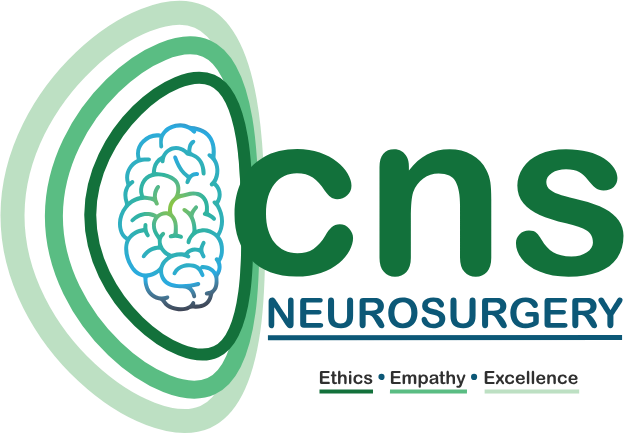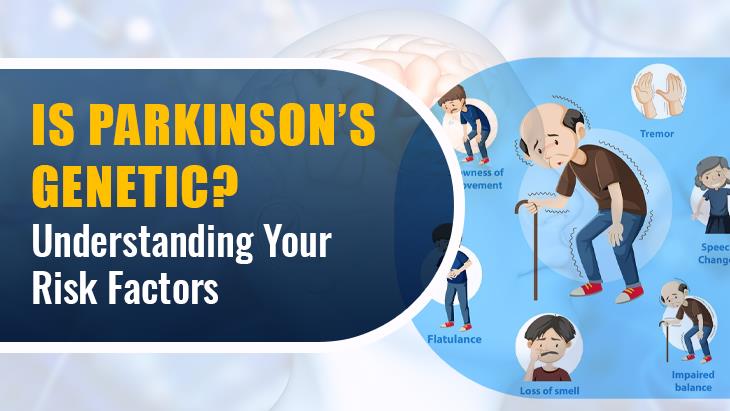Movement, balance, and coordination are the main areas affected by Parkinson’s disease (PD), a progressive neurodegenerative illness. Millions of people are affected by Parkinson’s disease (PD), one of the most common neurological conditions in the world, especially those over 60. Although ageing and environmental factors are commonly acknowledged to play a role in Parkinson’s disease, many people and families wonder if the disease is inherited. Early detection, prevention, and management of Parkinson’s disease (PD) depend on knowing whether the disease runs in families and what risk factors raise the chance of getting it.
In this blog, we will explore the genetic link to Parkinson’s disease, common and rare risk factors, and the advancements in research that may help in understanding and predicting the disease. Additionally, we will also provide information on proactive measures that people can take if they have a family history of Parkinson’s disease.
Understanding Parkinson’s Disease
Degeneration of the dopamine-secreting neurons in the substantia nigra, a brain region, is the primary characteristic of Parkinson’s disease. A deficiency of dopamine resulting from this degeneration leads to the following characteristic motor symptoms:
- Tremors, which typically begin in the hands or fingers
- Bradykinesia (moving slowly)
- Muscle rigidity or stiffness
- Postural instability
Depression, insomnia, constipation, cognitive decline, and loss of smell are examples of non-motor symptoms. These symptoms often get worse as the illness worsens and can seriously lower the quality of life.
Although the precise cause of Parkinson’s disease is still unknown, it is thought to be a result of a mix of environmental and genetic factors.
Is Parkinson’s Genetic?
In short, Parkinson’s disease can, but is not always, genetic. The majority of Parkinson’s disease cases are sporadic, which means there is no known family history. A genetic connection may exist, though, as 10–15% of people with Parkinson’s disease have a family history of the condition.
Genetic Forms of Parkinson’s Disease
Mutations in particular genes that are passed down from one generation to the next are typically involved in inherited Parkinson’s disease. Several important genes linked to Parkinson’s disease in families include:
SNCA Gene:
- Alpha-synuclein, a protein present in Lewy bodies—abnormal protein aggregates in Parkinson’s disease patients’ brains—is encoded by this gene.
- Although they are uncommon, SNCA mutations or duplications are closely linked to inherited Parkinson’s disease.
LRRK2 Gene
- The most common genetic mutation responsible for familial Parkinson’s disease is the LRRK2 gene.
- This is especially common among some ethnic groups, like North African Berbers and Ashkenazi Jews.
PRKN, PINK1, and PARK7 Genes
- Usually linked to Parkinson’s disease with an early onset (diagnosis before age 50).
- These genes support mitochondrial health and shield neurons from oxidative stress.
Even though these genetic mutations greatly raise the risk of Parkinson’s disease (PD), not all people who have the mutation will go on to get the illness. This implies that additional environmental and genetic modifiers may be involved.
Risk Factors for Parkinson’s Disease
In addition to known genetic mutations, a number of additional risk factors have been found:
Age:
- After the age of 60, age risk significantly rises.
Gender
- Parkinson’s disease is 1.5 times more common in men than in women.
Environmental Exposure
- The risk may be raised by exposure to industrial pollutants, pesticides, and herbicides.
- Consumption of well water is also linked to living in a rural area.
Head Trauma
- The risk of Parkinson’s disease may be increased by a history of traumatic brain injury.
Family History
- Risk is increased by having a close relative with Parkinson’s disease, particularly if the relative has early-onset Parkinson’s.
Genetic Testing for Parkinson’s: Should You Consider It?
It may shed light on PD in people with a strong family history or those who were diagnosed early. Genetic counselling is advised both prior to and following testing to comprehend the ramifications.
Genetic testing can:
- Genetic testing can determine whether you have mutations in genes such as SNCA or LRRK2.
- Assist in taking part in gene-targeted therapy clinical trials.
- Help people make decisions about family planning, prevention, and lifestyle.
Drawbacks to genetic testing:
- Not every genetic mutation can be identified.
- The onset of the disease is not assured by a positive test.
- Risk is not entirely eliminated by a negative test.
Can Genetic Parkinson’s Be Prevented?
As of right now, Parkinson’s disease cannot be prevented. However, people may be able to adopt healthier lifestyles and participate in clinical studies or monitoring programs if risk factors are identified early.
Emerging research indicates that:
- Regular exercise, particularly aerobic activities, can delay onset and progression.
- A diet high in Mediterranean fruits, vegetables, and omega-3 fatty acids might be protective.
- Avoidance of environmental toxins and head trauma is advisable.
Advances in Genetic Research
Current state-of-the-art research is concentrated on neuroprotective therapies and gene therapies that could alter the progression of Parkinson’s disease. Methods like RNA-based treatments and CRISPR gene editing are being researched. Furthermore, the goal of extensive research like the Parkinson’s Progression Markers Initiative (PPMI) is to find biomarkers that forecast the onset of Parkinson’s disease.
Living with a Genetic Risk: What Can You Do?
The following actions can be taken if Parkinson’s disease runs in your family or if you are worried about your genetic risk:
- Consult with a Neurologist: If you observe early symptoms such as tremors or changes in movement, get evaluated.
- Genetic Counseling: Recognize your individual risk and testing alternatives.
- Lifestyle management includes stress management, eating a balanced diet, and regular exercise.
- Regular Monitoring: Better symptom management may result from early detection.
- Keep Up to Date: Using trustworthy resources and support groups, stay up to date on the latest findings and treatments.
Final Thoughts: Is Parkinson’s Genetic?
A considerable minority of Parkinson’s cases have a genetic basis, although the majority are sporadic. You can make educated healthcare decisions if you are aware of genetic risk factors and your family history. Personalized medicine is the way of the future for treating Parkinson’s disease, and genetic insights are essential for early diagnosis and focused treatments.
About Dr. Chirag Solanki – Best Neurosurgeon in Ahmedabad
Speaking with an expert can be crucial if you or a loved one is worried about Parkinson’s disease. The best neurosurgeon in Ahmedabad, Dr. Chirag Solanki, provides cutting-edge treatment options and professional consultation for neurological conditions like Parkinson’s. With a patient-centred approach and a wealth of functional neurosurgery experience, Dr Solanki assists people in precisely and carefully managing and overcoming complex neurological conditions.
Book your appointment today and take the first step toward better neurological health.

